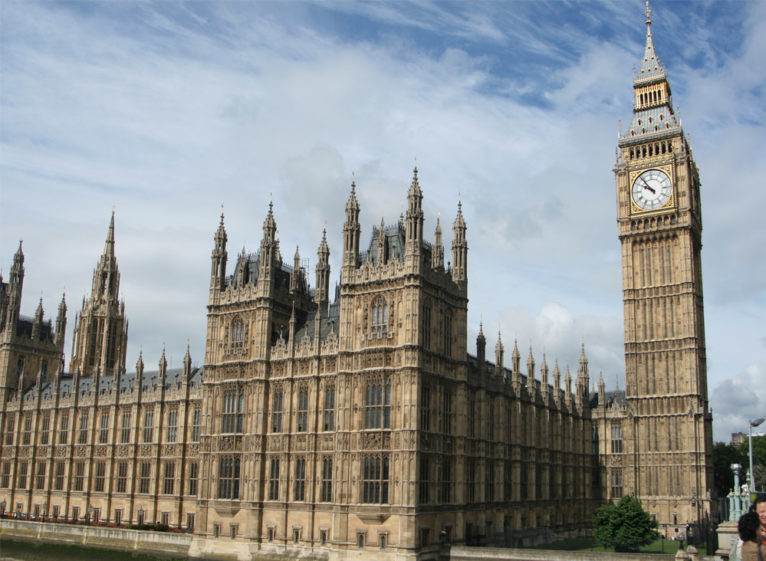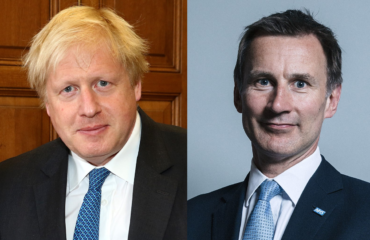General Election 2019: What does this mean for the environment?

The 2019 general election was remarkable in the prominence accorded to the environment in all the party manifestoes. There was a climate debate on Channel Four and a range of stories on climate change as the election unfolded, largely thanks to the international climate change Conference of the Parties meeting in Madrid. Polling indicated that a quarter of voters regarded the issue as important.
Yet the outcome suggests that the environment was yet again crowded out by other issues – most notably Brexit.
Academically this trend underlines the extent to which the environment and climate change are viewed as a valence issue for UK parties – a so-called motherhood and apple pie issue – where no major political party wants to look bad. This is in sharp contrast to the US and Australia, where the environment is typically a positional issue, characterised by ideological polarisation with those on the right generally more climate-sceptic. In the UK, the parties have instead sought to squeeze out the Greens by occupying their territory and reducing party political competition on the environment.
The Conservative manifesto
So what does the Johnson government’s majority mean for the environment? Whilst the Conservative manifesto had a section on the environment, the Conservatives were the least environmentally ambitious and the most vague, particularly compared to Labour’s commitments to a green new deal. The date for meeting the net-zero target was the furthest at 2050 and there was little detail on the policies that will be put in place to deliver on this goal. The Committee on Climate Change has already identified a policy gap: the UK has yet to put in place the policies required to deliver on current carbon budget targets.
Brexit and environmental governance gaps
With a functioning Conservative majority in Parliament, it is almost certain that the UK will be leaving the European Union on 31 January 2020. The commitment to ‘get Brexit done’ raises a host of questions about environmental governance gaps. The manifesto promises that the Environment Bill and the proposed new Office for Environmental Protection will be reintroduced, so we should expect to see them in the Queen’s Speech. The version that appeared before the election have been criticised for being insufficiently detailed and ambitious. It seems unlikely that the reintroduced bill will be much different.
The key issue shaping environmental and food standards is the nature of the Brexit deal – and what kind of future relationship is agreed with the European Union. The revised Withdrawal Agreement negotiated by Mr Johnson in October contained much more limited commitments to environmental non-regression than the original deal negotiated by Theresa May, largely because the UK as a whole would not remain in the EU customs union. Key questions are now what type of future relationship that Johnson wants with the EU, what room there is for environmental ambition in it and how quickly the UK and EU can negotiate.
Looking forwards
There is an early indication from the Prime Minister’s early morning speech that he intends to take a one nation position. If he wants to attract younger, progressive voters he will need a credible environmental offer. Equally, the Conservatives made strong gains in Northern seats traditionally held by Labour where environmental issues are less central. There is a risk that the new government will pay lip service to the environment but make limited concrete commitments to deliver against goals and targets. Certainly, the lack of detail in the Conservative manifesto may justify such cynicism.
The increase in the Conservative majority also means that the scope for the House of Commons to hold the government to account will be reduced. This is crucial given that the UK is about to leave the system of EU environmental governance and enforcement led by the European Commission and the Court of Justice of the European Union. More work may be in store for the House of Lords to ensure that policies deliver against environment goals and needs.
Finally, the resurgent SNP vote in Scotland reveals profound territorial divisions in the UK – highlighting both the need to cooperate on tackling shared environmental challenges across the four nations, and the difficulties of such cooperation between devolved and central administrations of very different political hues. Whilst the environment may be a valence issue, who decides on the UK’s environmental policy – be it Westminster or all four nations – remains highly contested.
So whilst this is the election where the environment arrived as an issue, it remains to be seen whether the step change in policies needed to reach net-zero greenhouse gas emissions, address pollution and waste, and protect nature will be delivered.
About the author
Charlotte Burns is a Professorial Fellow in the Department of Politics, University of Sheffield and a co-chair of the Brexit & Environment network. Photograph courtesy of Alan Cleaver.





Patrick Cosgrove
13th December 2019 at 1:11 pmInteresting that the farming bodies are wanting to hold the Tories to their manifesto promises on food standards, environmental standards, and climate change. I’m not so sure that truly represents their members’ views, though.